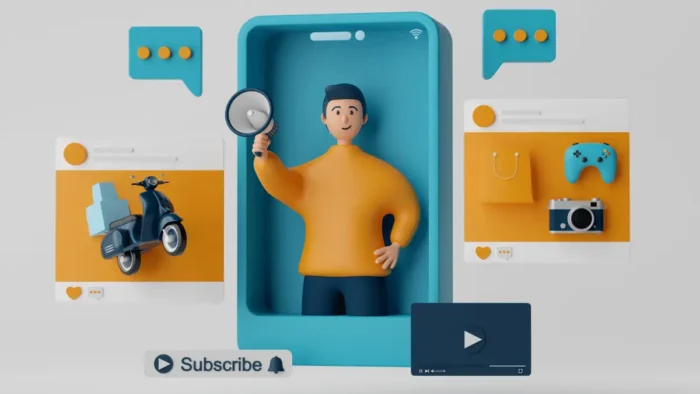Are you struggling to keep up with the fast-paced world of mental health practice support and innovation? In today’s rapidly evolving landscape, staying ahead of competitors is crucial to provide the best care for those in need.
Don’t let the fear of falling behind paralyze you. Instead, explore leveraging these cutting-edge approaches to outperform your mental health practice competitors. Equipped with the knowledge and tools, you can elevate your services and significantly impact your clients’ lives.
With these health concerns increasing and the demand for effective treatments increasing, adapting and embracing innovative solutions is essential. In this article, you will find game-changing technologies and strategies to revolutionize your mental health practice and enhance patient outcomes.
1. Teletherapy and Telepsychiatry Services
You might have wondered how to reach out to individuals who find it challenging to attend in-person therapy sessions or struggle with limited access to psychological support services.
With teletherapy and telepsychiatry services, the answer is right at your fingertips. These tech-driven approaches are changing the landscape of psychological wellness care, making it more convenient and accessible for everyone involved.
Teletherapy allows patients to connect with mental health specialists from the comfort of their own space, breaking down the barriers of distance and time. This therapy session can take place in real-time, involving phone conversations and text messaging, or in a time-delayed format, including email communication. Though this type of therapy has limitations, it is quickly becoming an essential resource for a growing number of people, states Verywell Mind.
Telepsychiatry takes this one step further, providing remote psychiatric evaluations, diagnoses, and medication management. If a patient is struggling to find a local psychiatrist or has a long waiting list in their area, telepsychiatry can bridge that gap and connect them with qualified personnel.
2. Digital Mental Health Tools and Apps
As a mental healthcare provider, integrating digital mental health tools and apps into your practice can significantly enhance the support you offer to your patients. These health tools are designed to serve different aspects of mental well-being.
For instance, mood-tracking apps allow users to monitor their emotions and thought patterns through meditation. Also, there are relaxation apps that guide individuals through mindfulness exercises that allow users to engage in self-care practices at their own pace.
One notable advantage of these tools is their ability to deliver personalized experiences. Many apps utilize artificial intelligence to personalize their approach based on individual needs and preferences. It enhances the effectiveness of mental health support.
Moreover, with the advancement of digital technologies comes the new-age treatment solution known as prescription digital therapeutics (PDTs).
According to the National Library of Medicine, PDTs are software-based mobile-based therapies that target the behavioral aspects of several illnesses and ailments. These digital tools can potentially provide new and effective treatment choices for many health issues. Their arrival brings exciting opportunities for improving healthcare.
3. Mental Health Billing Solutions
You no longer have to spend countless hours on paperwork or worry about the accuracy of your billing. With these specialized tools, you can efficiently generate and submit invoices, ensuring you receive timely service payments.
The convenience and efficiency of mental health billing solutions extend beyond just simplifying tasks. They also give you the flexibility to access the billing data securely from any device. It lets you stay on top of your financials and make informed decisions about your practice.
According to Psyquel, mental health billing software comes with many features. These include scheduling and reminding for appointments and an electronic medical records (EMR) system for patient information. These also come with a portal that allows patients to view their treatment plans, pay bills, and submit queries online.
Furthermore, these solutions come with automated reminders and alerts for unpaid invoices, helping you maintain a healthy cash flow and avoid revenue loss.
4. Artificial Intelligence and Machine Learning
According to a WHO event, using artificial intelligence (AI) tools can assist you in gaining insight into mental health patients. These include what they require as well as the questions they are asking. Using social media and electronic health records data, you can also use these tools to identify people at risk of developing a psychological condition.
Therefore, with the help of AI and machine learning algorithms, you can analyze vast amounts of data, including patient records, research articles, and clinical literature. By leveraging this data, these technologies can assist you in making more accurate diagnoses and treatment recommendations.
One of the most exciting applications of AI is chatbots and virtual assistants. These intelligent programs can engage with clients in real time, offering immediate support and personalized interventions.

5. Electronic Health Records and Data Analytics
With EHR systems, you can securely store and access all your client’s data in one centralized platform. Looking through stacks of paperwork is challenging. You can quickly retrieve client histories, treatment plans, and progress notes with just a few clicks. This streamlined process allows you to focus on building stronger connections with your clients.
Moreover, EHRs integrate with data analytics tools, enabling you to derive meaningful patterns and trends from the information at your disposal. These insights can help you identify effective treatment methods, track client outcomes, and make decisions to improve your practice’s overall performance.
6. Virtual Reality Therapy
Virtual Reality (VR) therapy is an exciting tech approach that can significantly enhance psychological treatment and take your practice to the next level.
With VR therapy, you can create immersive simulations tailored to your client’s specific needs and challenges. Virtual scenarios offer a safe and guided method for clients to face and handle their fears, stress, or traumatic experiences, such as phobias.
By offering a safe space to practice coping skills and emotional regulation, the therapy helps clients build confidence in real-life situations. This form of exposure therapy can be especially beneficial for individuals with social anxiety, post-traumatic stress disorder (PTSD), or generalized anxiety disorder.
7. Online Therapeutic Communities and Support Networks
With the help of online therapeutic communities and support networks, patients can now find a sense of belonging and support from people worldwide who share similar experiences.
You can introduce them to these virtual communities that offer a safe and nurturing space where they can share their thoughts, feelings and struggles openly. Whether they are facing depression, anxiety, or any other psychological issue, a community of individuals can offer valuable insights and encouragement.
Participating in online support networks can help fight feelings of isolation and loneliness, providing them a sense of validation and understanding. Engaging with others who have walked a similar path can encourage hope in their journey to mental well-being.
Embrace Growth by Innovating and Adapting
As you embrace these tech approaches, you boldly become a compassionate and forward-thinking mental health specialist. Embrace innovation, be adaptable, and continue growing, and you’ll find yourself outperforming your competitors while making a meaningful impact on the mental well-being of countless individuals.
Remember, the journey to better mental well-being starts with you and the transformative power of technology.





